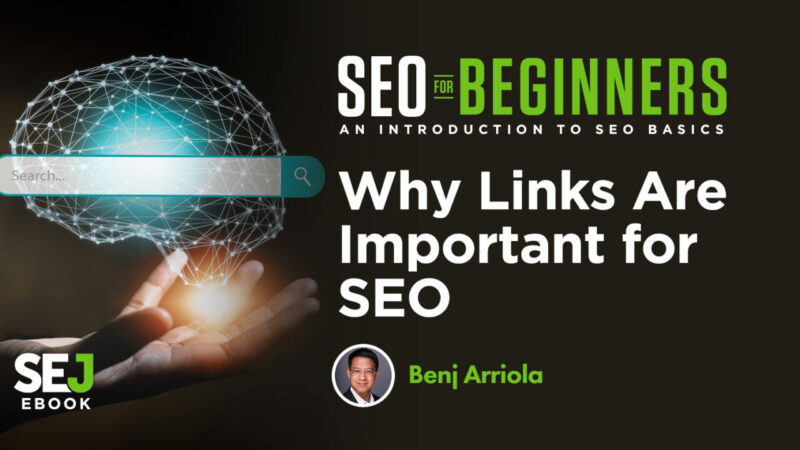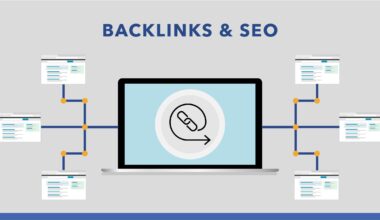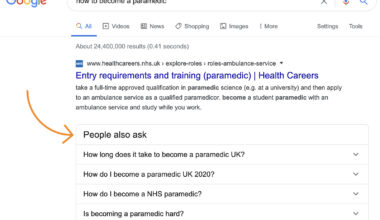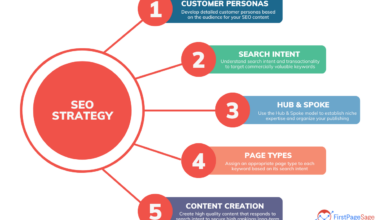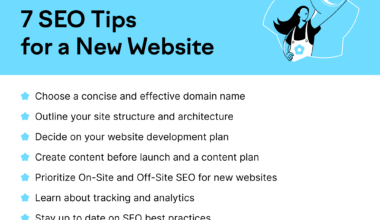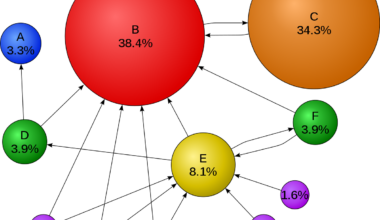Introduction: Understanding Link Relevance in SEO
As an SEO professional, it’s essential to understand the role of link relevance in improving a website’s search engine ranking. Link relevance refers to the relationship between the content of a web page and the anchor text and link’s destination.
In simple terms, a relevant link is one that connects two pages with similar content or topics. For example, if you are writing an article about “link building,” linking to another article about “SEO strategies” would be less relevant than linking to an article about “types of backlinks.”
The relevance of a link is crucial because search engines like Google use it as a ranking factor. When a page links to another page with similar content, it signals to search engines that the linked page is authoritative and valuable. Thus, relevant links can improve a website’s search engine ranking and drive more traffic to the site.
However, not all links are relevant, and some can even harm a website’s SEO efforts. In the next sections of this article, we will explore the importance of relevant anchor texts, linking to relevant content on the same website, linking to relevant external websites, and the negative impact of irrelevant links.
By understanding the importance of link relevance, you can create an effective link building strategy that will improve your website’s search engine ranking and drive more traffic to your site.
The Importance of Relevant Anchor Texts
Anchor text is the clickable text that appears as a hyperlink on a web page. It is an essential component of link relevance and plays a critical role in improving a website’s search engine ranking.
When creating anchor texts, it is important to use relevant keywords that describe the content of the linked page. For example, if you are linking to an article about “types of backlinks,” the anchor text should include keywords like “backlinks,” “types of backlinks,” or “link building strategies.”
Using relevant anchor texts helps search engines understand the content of the linked page and its relevance to the linked website. It also helps users understand what they can expect to find on the linked page and encourages them to click on the link.
Here are some best practices for creating relevant anchor texts:
- Use descriptive keywords that accurately describe the content of the linked page.
- Avoid using generic phrases like “click here” or “read more.”
- Keep the anchor text concise and avoid using too many keywords or phrases.
- Use a variety of anchor texts to avoid over-optimization and to make the linking appear more natural.
In addition to using relevant anchor texts, it is also important to ensure that the linked page’s content is relevant to the anchor text and the linked website. When a user clicks on a link, they expect to find information that is related to the anchor text and the website’s content. If the linked page’s content is not relevant, users may leave the site, resulting in a high bounce rate.
In summary, relevant anchor texts are an essential component of link relevance and can significantly impact a website’s search engine ranking. By using descriptive keywords that accurately describe the linked page’s content, you can improve the link’s relevance and drive more traffic to your site.
Linking to Relevant Content on the Same Website
When it comes to link relevance, linking to relevant content on the same website is just as important as linking to external websites. Internal linking helps search engines understand the structure and hierarchy of a website and how pages are related to each other.
Here are some tips for linking to relevant content on the same website:
- Use descriptive anchor texts that accurately describe the content of the linked page. As we discussed earlier, using relevant keywords in the anchor text helps search engines understand the content of the linked page and its relevance to the linked website.
- Link to pages that are topically related to the current page. For example, if you are writing an article about “link building,” you can link to other articles on your website that discuss specific link building strategies like “guest blogging,” “broken link building,” or “infographic outreach.”
- Link to pages that provide additional value or information to the user. For instance, if you’re writing an article about “SEO strategies,” you can link to a page on your website that offers a free SEO audit tool or a comprehensive guide to on-page optimization.
- Use a reasonable number of internal links per page. While internal links are essential for SEO, overusing them can be counterproductive and make the content look spammy. A good rule of thumb is to use no more than three internal links per 500 words of content.
By linking to relevant content on the same website, you can create a better user experience, improve your website’s structure and hierarchy, and signal to search engines that your website is a valuable source of information.
However, it’s important to avoid linking to irrelevant or low-quality pages on your website. Doing so can harm your website’s search engine ranking and user experience. Therefore, it’s crucial to regularly audit your internal links and ensure that they are relevant, useful, and high-quality.
In conclusion, linking to relevant content on the same website is an essential component of link relevance and can significantly impact a website’s search engine ranking and user experience. By following the tips outlined above, you can create an effective internal linking strategy that improves your website’s SEO efforts and drives more traffic to your site.
Linking to Relevant External Websites
Linking to relevant external websites is a crucial aspect of link relevance in SEO. When you link to high-quality, authoritative external websites that are topically related to your content, you signal to search engines that your website is a valuable source of information.
Here are some tips for linking to relevant external websites:
- Link to websites that are topically related to your content. For example, if you are writing an article about “link building,” you can link to a website that provides information about “types of backlinks,” “guest blogging,” or “broken link building.”
- Link to high-quality, authoritative websites. Search engines consider the authority and trustworthiness of external websites when determining the relevance and value of a link. Therefore, it’s essential to link to high-quality websites with a good reputation in your industry.
- Use descriptive anchor texts that accurately describe the content of the linked page. As we discussed earlier, using relevant keywords in the anchor text helps search engines understand the content of the linked page and its relevance to the linked website.
- Avoid linking to low-quality or spammy websites. Linking to irrelevant or low-quality websites can harm your website’s search engine ranking and user experience. Therefore, it’s crucial to research and vet the websites you are linking to before including them in your content.
By linking to relevant external websites, you can improve your website’s search engine ranking and provide additional value and information to your users. It also signals to search engines that your website is part of a larger network of authoritative websites in your industry.
However, it’s important to avoid overusing external links and to ensure that they are relevant and useful to your users. Too many external links can make your content look spammy and distract your users from your main message.
In summary, linking to relevant external websites is an essential component of link relevance in SEO. By following the tips outlined above, you can create an effective external linking strategy that improves your website’s search engine ranking and provides additional value to your users.
The Negative Impact of Irrelevant Links
While relevant links can improve a website’s search engine ranking, irrelevant links can have the opposite effect. When a website has too many irrelevant links, it signals to search engines that the website is of low quality and is trying to manipulate its search engine ranking. This can result in a penalty or a drop in search engine ranking, which can significantly harm a website’s visibility and traffic.
Here are some examples of irrelevant links that can harm a website’s SEO efforts:
- Paid links or link exchanges: Websites that engage in paid links or link exchanges to improve their search engine ranking run the risk of being penalized by search engines. These tactics are considered manipulative and violate search engine guidelines.
- Links from low-quality or spammy websites: Links from low-quality or spammy websites can harm a website’s search engine ranking and reputation. Search engines consider the quality and relevance of external websites when determining the value of a link.
- Links from unrelated or irrelevant websites: Links from unrelated or irrelevant websites can confuse search engines and harm a website’s search engine ranking. For example, if you are running a pet care website, linking to a website about car parts would be irrelevant and harmful.
To avoid the negative impact of irrelevant links, it’s essential to regularly audit your website’s link profile and remove any irrelevant or low-quality links. You can use tools like
Ahrefs
or
Moz’s Link Explorer
to analyze your website’s link profile and identify any harmful links.
In addition, it’s crucial to focus on creating high-quality, relevant content that naturally attracts relevant links. By providing valuable information and resources to your users, you can earn links from authoritative websites and improve your website’s search engine ranking.
In conclusion, irrelevant links can harm a website’s search engine ranking and reputation. By avoiding paid links or link exchanges, avoiding low-quality or spammy websites, and ensuring that all links are relevant and useful to your users, you can create an effective link building strategy that improves your website’s search engine ranking and drives more traffic to your site.
Final Thought: Maintaining Link Relevance for Successful SEO
Link relevance is a critical factor in SEO that can significantly impact a website’s search engine ranking and visibility. By understanding the importance of relevant anchor texts, linking to relevant content on the same website, linking to relevant external websites, and avoiding irrelevant links, you can create an effective link building strategy that drives more traffic to your site.
However, maintaining link relevance is an ongoing process that requires regular monitoring and optimization. Here are some tips to help you maintain link relevance for successful SEO:
- Regularly audit your link profile and remove any irrelevant or low-quality links. Use tools like Ahrefs or Moz’s Link Explorer to identify harmful links and take action to remove them.
- Focus on creating high-quality, valuable content that naturally attracts relevant links. By providing information and resources that are useful to your users, you can earn links from authoritative websites and improve your website’s search engine ranking.
- Keep your internal and external links up-to-date and relevant. Regularly review your content and update any outdated links or resources.
- Avoid overusing internal and external links. While links are essential for SEO, overusing them can make your content look spammy and detract from your main message.
By following these tips, you can create and maintain an effective link building strategy that improves your website’s search engine ranking and drives more traffic to your site. Remember that link relevance is an ongoing process that requires regular monitoring and optimization. By staying up-to-date with the latest SEO trends and best practices, you can ensure that your website remains competitive and visible in search engine results pages.
